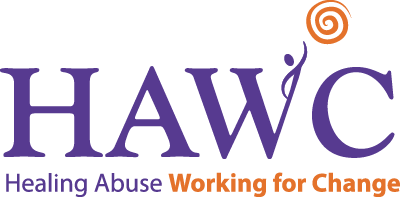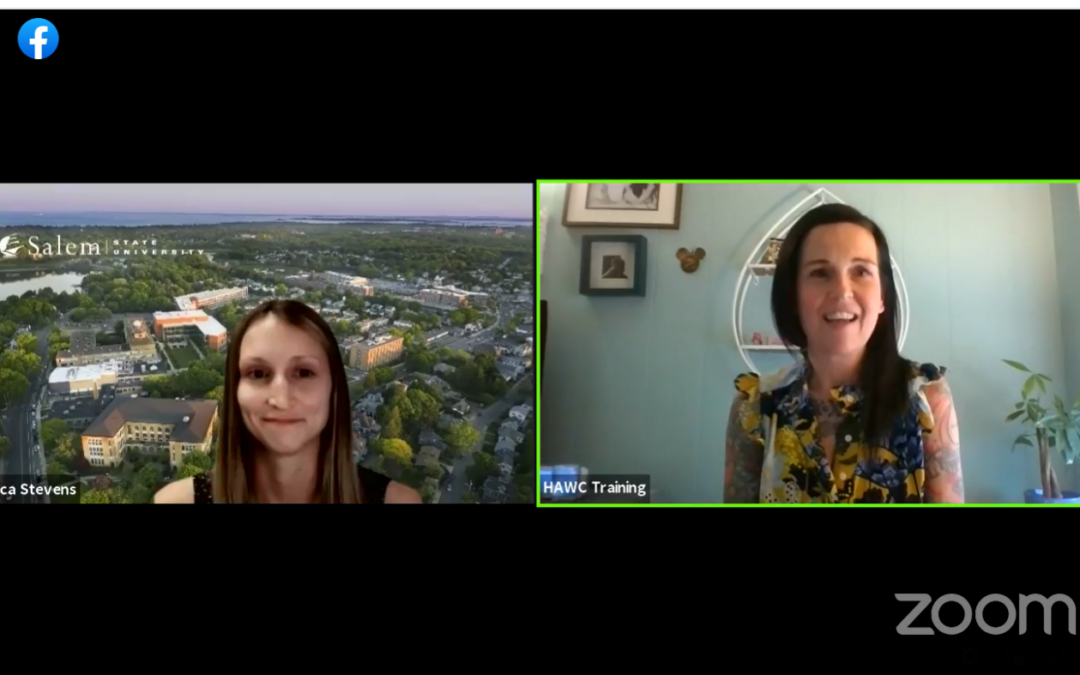HAWC was proud to offer the first of a series of virtual Community Conversations via Facebook Live on Thursday, August 19. During our first Community Conversation, HAWC’s Senior Manager of Educational Programming Elisabeth Nash Wrenn chatted with Jessica Stevens, Program Coordinator of the Prevention, Education, Advocacy and Response (PEAR) Program at Salem State University, about Dispelling Myths & Empowering Survivors.
Myths and misconceptions about abuse and survivors create harmful stereotypes and stigmas about what is considered abuse, why it occurs, and who is most likely to be a survivor or abusive person. These negative inaccuracies can also create barriers that prevent survivors from receiving the help they need.
Jessica and Elisabeth broke down several common myths, including the example that many people believe that abuse is only physical. In fact, abuse occurs when one partner aims to gain power and control over the other, and exists through a variety of tactics, including mental, emotional, financial, cultural, technological and sexual.
“Why don’t survivors just leave?” is another common question that people who are not in an abusive relationship might ask themselves. The event speakers shared that the time when a survivor attempts to leave an abusive relationship is often when they are at most risk of harm. Additionally, years of being broken down mentally, financial constraints, and fear of loss of custody are just a few of the examples that might explain why a survivor is hesitant to leave the relationship.
Elisabeth shared that when this question comes up in conversations, she often asks people: “What could you just pick up and leave in your life that wouldn’t have massive tradeoffs?”
Jessica also recognized the common assumption that people who are violent are abusive at all times and to everyone in their lives. This, Jessica points out, is simply not true.
“What we know is that a lot of abusive partners can also be really charming, especially at the beginning of the relationship,” Jessica said, adding that someone who is abusive toward a partner may not exhibit any of these same behaviors with other loved ones because the need for control is not the same.
Our first Community Conversation was meant to highlight these common myths to educate our community, but also it is an opportunity to, as Jessica says, “move the needle” in every conversation to enact real, lasting cultural change to end abuse.
How do we accomplish this? The first step, Elisabeth said, is to treat the survivors in our lives with empathy, understanding and compassion. She also shared that HAWC has volunteer opportunities and other ways to get involved to support survivors.
The full Community Conversation recording is available on our Facebook page.


